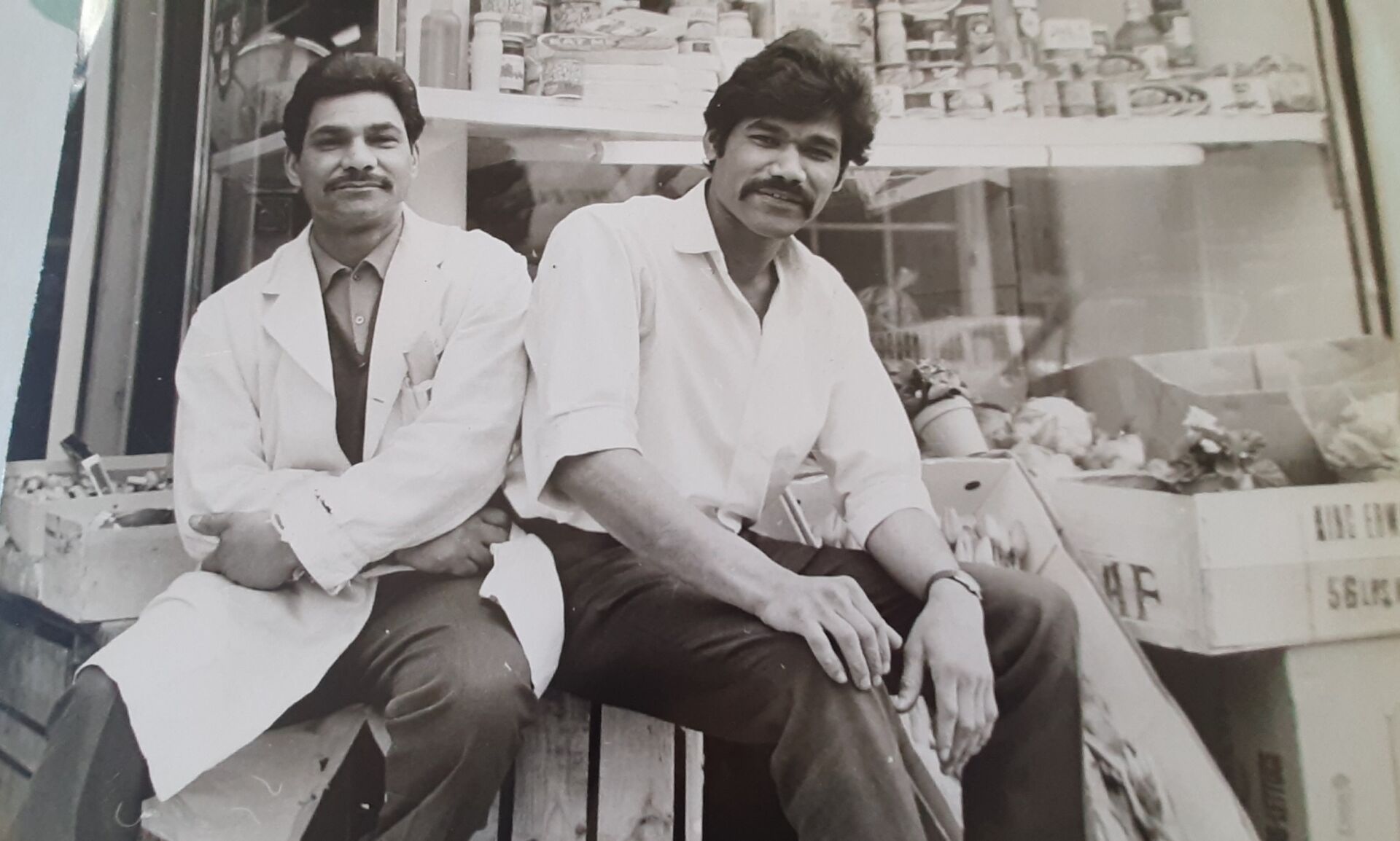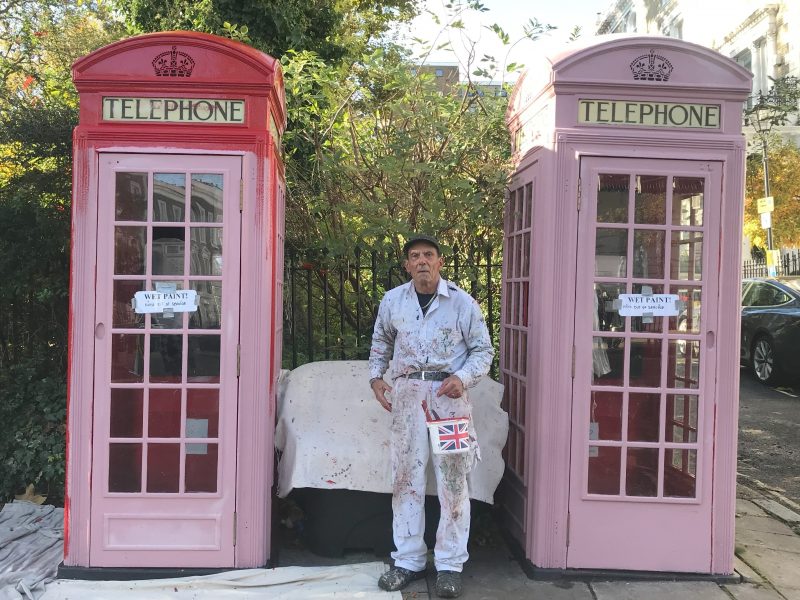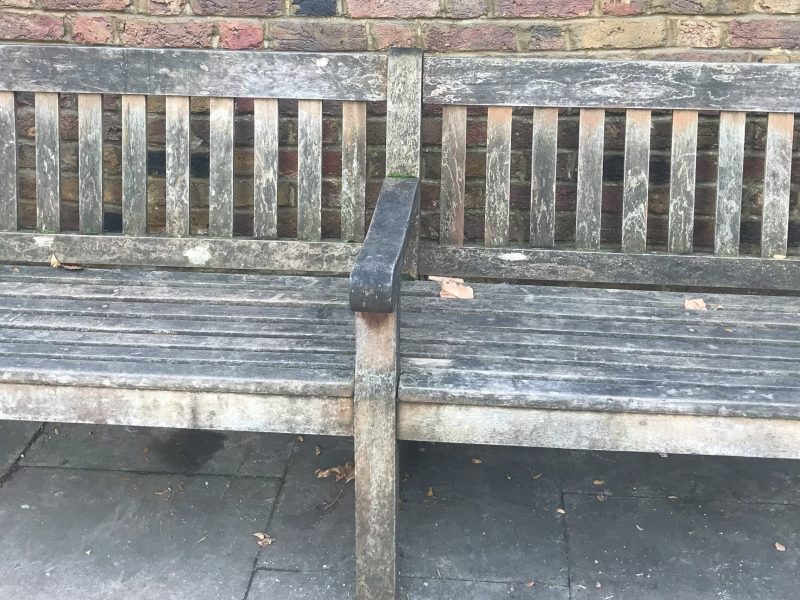By The Mole on the Hill
Grandad, why are there three fruit and veg shops all on one road?
I don’t know the answer to that, Lass. There’ve always been three.
The people must be very healthy.
Aye and rich. Fruit and veg doesn’t come cheap nowadays.
Yeomans is probably the best known of the three fruit and veg shops on Regent’s Park Road. The name has stayed the same even though the shop has had different owners. Nizam Hossain, born in Cape Town in 1942, was ‘Mr Yeoman’ for a number of years, and his father before him.
“I spent my formative years in Cape Town, brought up with my eight brothers and one sister in a fairly strict Muslim family. We went through the harshest times of Apartheid, classed as ‘Cape Malay’. It was demeaning but it was just the way of life. We stuck to the rules and got by. We were comfortably off. My father, Max, was a businessman and a semi-professional singer. In 1960 he left for England to set up in business and develop a short-lived singing career, while I went to university in South Africa; but I messed up there and came to England to join my father.”
At this time Max was working for the previous owner of the shop, Mr Shearn. Max wanted Nizam to continue his studies, so he started studying maths and science at Kingsway College in Holborn; but it was clear that the academic life was not for him.
“I dropped out once again. The ‘scene’ got to me. It was the hippy era. Alcohol and drugs did not appeal because I was a Muslim, but I was really into the music and clubbing. By this time I had decided to join my father in the shop. In the sixties and seventies England was a terribly racist place, but in a subtle way, not like in South Africa. When my father arrived in London he could not get a job that matched his capabilities as a businessman; so he worked in shops, but was never allowed to serve customers. He worked in the basements packing boxes.”
Yeomans was first owned by a prominent businessman, Mr Shearn, who had a florist’s (By Appointment to the Queen), a health food restaurant in Tottenham Court Road, and other businesses. Round about this time he sold his businesses and retired to France; fortunately, he was happy to sell the shop to Max.
“People said, ‘You won’t last. In six months, you’ll be gone. And in fact, some of the staff and a lot of the customers left us. But we managed largely because we had a contract with the zoo to supply fruit and veg for the animals. The whole of the shop basement was devoted to this, with boxes packed individually and delivered daily. We had special bananas brought from Jamaica for Guy the Gorilla, and that helped us through the critical first couple of years. But the prices we were charging were too low, so my father arranged a meeting with the officials at the zoo. Up till then they had always dealt with Mr Shearn, and we had continued to use his name on the contract and letterhead; so this was the first time they had met my father face-to-face. Shortly after that meeting, they terminated the contract. Draw your own conclusions.”
Despite all this, the business thrived. “Remember, we were schooled in South Africa. We had learned to be, if not servile, polite and accommodating. It was second nature to us to do that extra bit: take the bags out to the car, and greet everyone. We were able to build up a rapport. The customers liked us and stayed with us.”
Life in the fruit and veg business is never easy. It meant early morning trips to Covent Garden, every day. Max would be there first to buy the produce, and then Nizam would go with the van to collect it. There was also a contract with University College to supply food for the animals that were used in experiments: again, carefully boxed and delivered fresh every morning at 4.30.
The seventies was a period of great upheaval in Primrose Hill. The most significant development was closing the railway bridge to traffic. It happened almost overnight. One day, traffic was coming though and customers were parking outside the shop; and the next thing, people were having to change their driving routes. Add to that the parking restrictions and the increased cost of shop leases, and change was inevitable.
“We put up a fight, but we didn’t stand a chance. A few of the shopkeepers did a bit of disruption, going out at night and pulling down barriers, filling in holes the council had dug, but we never achieved anything. Then Regent’s Park Road became a community road. You could get everything you needed there: two bakers, a butcher’s, a fish and chip shop, a garage, a cobbler’s, a bookshop, two hardware shops, a cheese chop, Bibendum and Mustoe’s restaurant. And we thrived there. My father retired in 1978, and I bought the shop from him.”
The roll call of Yeomans’ customers reads like a celebrities’ Who’s Who: David Bailey, Jean Shrimpton, Marianne Faithfull, Alan Bennett, David Bowie, Robert Stephens, Maggie Smith, Bob Geldof, Joe Melia, Lord Donaldson. They all came, they all stayed to chat; it was a rather exclusive social club. Nizam ran the shop until 1996, when he sold it to an ex-employee, Philip Berry.
That’s interesting about the animals. How many are there in the zoo?
Over 19,000.
That’s a lot. And they’ve all got to be fed every day. No wonder they need three fruit and veg shops along here.




